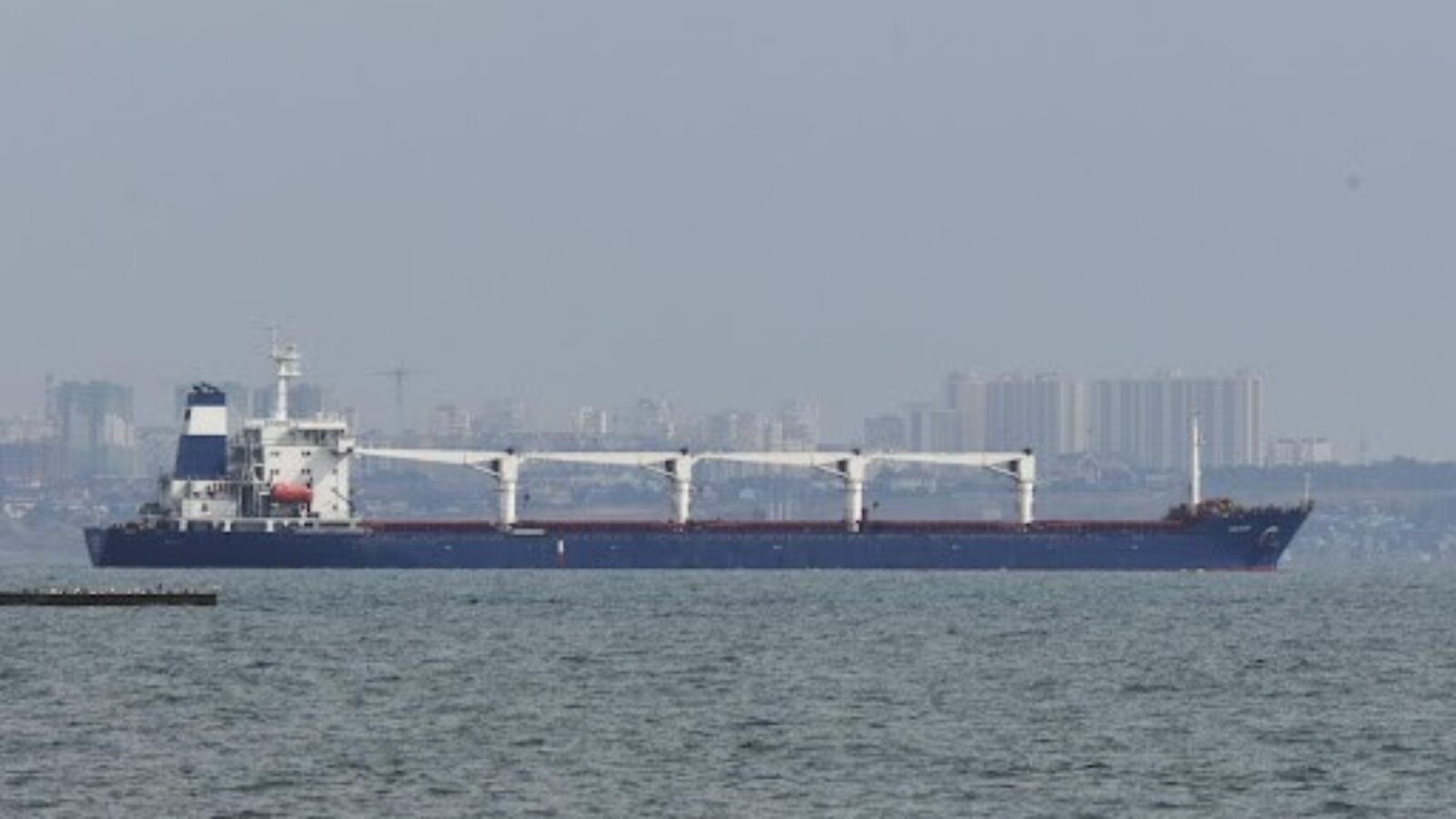Russia has been blockading Ukrainian ports since the war began in February, but under an internationally brokered, landmark deal, grain shipments can finally resume. The agreement is hoped to ease the growing global food crisis and lower food prices worldwide. Ukraine and Russia are significant suppliers of the world’s grain, even earning themselves the moniker “breadbasket of Europe.”
AP NEWS: 1st ship carrying Ukrainian grain leaves the port of Odesa
Susie Blann and Suzan Fraser; August 1, 2022
KYIV, Ukraine (AP) — The first ship carrying Ukrainian grain set out Monday from the port of Odesa under an internationally brokered deal to unblock the embattled country’s agricultural exports and ease the growing global food crisis.
The Sierra Leone-flagged cargo ship Razoni sounded its horn as it slowly departed with over 26,000 tons of corn destined for Lebanon.
“The first grain ship since Russian aggression has left port,” Ukrainian Minister of Infrastructure Oleksandr Kubrakov declared on Twitter.
Russia and Ukraine signed agreements in Istanbul with Turkey and the U.N. on July 22, clearing the way for Ukraine to export 22 million tons of grain and other agricultural products that have been stuck in Black Sea ports because of Russia’s invasion of Ukraine more than five months ago. The deals also allow Russia to export grain and fertilizer.
As part of the agreements, safe corridors through the mined waters outside Ukraine’s ports were established.
“Today Ukraine, together with partners, takes another step to prevent world hunger,” Kubrakov said.
In Moscow, Kremlin spokesman Dmitry Peskov hailed the ship’s departure as “very positive,” saying it would help test the “efficiency of the mechanisms that were agreed to during the talks in Istanbul.”
Under the agreements, ships going in and out of Ukrainian ports will be subject to inspection to make sure that incoming vessels are not carrying weapons and that outgoing ones are bearing only grain, fertilizer or related food items, not any other commodities.
The Razoni was expected to dock early Wednesday in Istanbul, where teams of Russian, Ukrainian, Turkish and U.N. officials were set to board it for inspection.
More ships are expected to leave from Ukraine’s ports through the safe corridors. At Odesa, 16 more vessels, all blocked since Russia’s invasion on Feb. 24, were waiting their turn, with others to follow, Ukrainian authorities said.
But some shipping companies are not yet rushing to export food across the Black Sea as they assess the danger of mines and the risk of Russian rockets hitting grain warehouses and ports.
U.N. Secretary-General Antonio Guterres, who proposed the grain deal in April, said the Razoni was “loaded with two commodities in short supply: corn and hope.”
“Hope for millions of people around the world who depend on the smooth running of Ukraine’s ports to feed their families,” he said.
In an interview with Turkey’s state-run Anadolu Agency, Turkish Defense Minister Hulusi Akar warned that the global food crisis threatens to trigger “a serious wave of migration from Africa to Europe and to Turkey.”
Lebanon, the corn’s destination, is in the grip of a severe financial crisis. A 2020 explosion at its main port in Beirut shattered its capital city and destroyed grain silos. Lebanon mostly imports wheat from Ukraine but also buys its corn to make cooking oil and produce animal feed.
Kubrakov said the shipments will also help Ukraine’s war-shattered economy.
In Kharkiv, two people were wounded by a Russian strike in the morning. One was struck while waiting for a bus, the other when a Russian shell exploded near an apartment building.
The southern city of Mykolaiv also faced shelling that ruined a building at a hospital and damaged ambulances, according to regional Gov. Vitaliy Kim. Three civilians were wounded elsewhere in the city, he said.
Soon after the grain shipment deal was signed, a Russian missile targeted Odesa. Analysts warned that the continuing fighting could still upend the grain deal.
“The departure of the first vessel doesn’t solve the food crisis; it’s just the first step that could also be the last if Russia decides to continue attacks in the south,” said Volodymyr Sidenko, an expert with the Kyiv-based Razumkov Center think tank.
In other developments, Russia announced sanctions against dozens of British public figures, accusing them of supporting the “demonization” and international isolation of Moscow.
The 39 politicians, businesspeople and journalists barred from entering Russia include former Prime Minister David Cameron, senior government ministers, and columnists for newspapers including The Times and The Guardian.
Photo: AP Photo/Michael Shtekel
